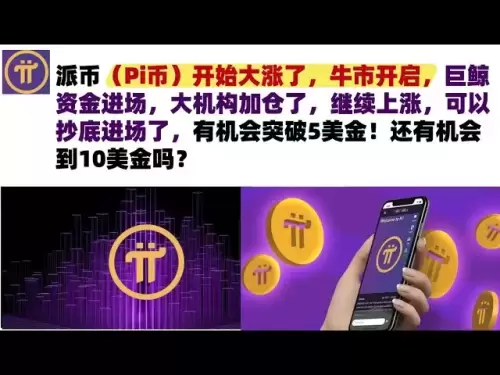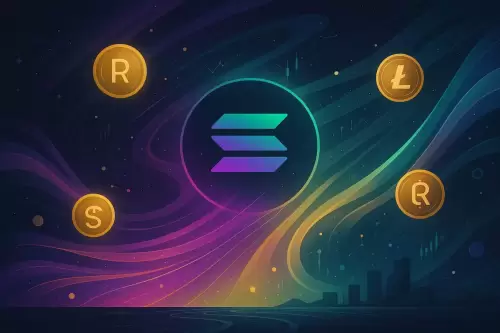 |
|
 |
|
 |
|
 |
|
 |
|
 |
|
 |
|
 |
|
 |
|
 |
|
 |
|
 |
|
 |
|
 |
|
 |
|
Cryptocurrency News Articles
Jito DAO's Bold Move: Capturing 100% of Solana Protocol Fees
Aug 06, 2025 at 06:47 am
Jito DAO's JIP-24 proposal aims to redirect all protocol fees to the DAO treasury, empowering token holders and reshaping Solana's DeFi landscape. Is this the future of decentralized governance?

Hold onto your hats, crypto enthusiasts! The Solana ecosystem is buzzing with the latest developments surrounding Jito DAO and their ambitious proposal, JIP-24, which could redefine how protocol fees are managed.
What's the Buzz About?
Jito Labs has initiated JIP-24, a governance proposal aiming to redirect all Block Engine and Block Assembly Market (BAM) fees entirely to the Jito DAO treasury, eliminating the prior 3% revenue share with Jito Labs. If approved, this move would centralize protocol revenue under the DAO, with estimated annual inflows of $15 million from BAM-related activities and other fees, significantly enhancing tokenholder value and governance control.
Key Points and Insights
- Decentralization Drive: JIP-24 marks a significant shift towards decentralizing value capture in the DeFi space.
- Financial Empowerment: The proposal could grant the DAO access to an estimated $15 million in annual revenue, strengthening its financial foundation.
- Tokenholder Focus: By consolidating revenue within the DAO, JIP-24 enhances economic incentives for holding JTO tokens.
The Nuts and Bolts of JIP-24
The proposal outlines technical adjustments, including configuration changes and transaction rerouting, to ensure all fees are directed to the DAO’s treasury, managed with the Credible SubDAO (CSD). These measures align economic incentives with the broader $JTO token holder community and reinforce the DAO’s role as the primary governance and economic hub of the Jito network.
Community and Market Reactions
Community engagement shows strong support for the decentralization shift. The move mirrors broader trends in decentralized finance (DeFi), where governance models increasingly favor DAO-driven structures over centralized entities.
Immediate effects include the cessation of Jito Labs’ direct revenue from protocol fees and the DAO’s full authority over fund allocation. Experts suggest that JIP-24 could enhance tokenholder engagement and influence broader market dynamics in the Solana ecosystem.
Potential Challenges and Future Outlook
While the proposal has garnered support, it also raises questions about the long-term sustainability of core development efforts, as Jito Labs would no longer receive direct revenue from the protocol.
Looking ahead, if approved, the redirection of fees under JIP-24 could begin immediately. The CSD is expected to launch initiatives aimed at deploying these funds to benefit token holders. The CSD will play a central role in developing economic models that align the DAO’s interests with those of the community.
My Two SOLs on the Matter
Personally, I think JIP-24 is a bold and exciting move. It underscores the growing trend of DAOs taking the reins in decentralized ecosystems. Sure, there are challenges ahead, but the potential for increased transparency, community engagement, and innovation is immense. It's like giving the keys to the kingdom to the people – let's hope they don't throw too many wild parties!
Wrapping It Up
So, there you have it! Jito DAO's JIP-24 is poised to shake things up in the Solana ecosystem. Whether you're a seasoned DeFi veteran or a curious newbie, keep an eye on this development. It could very well be a glimpse into the future of decentralized governance. And who knows, maybe one day we'll all be sipping Mai Tais on a beach funded by DAO dividends. Cheers to that!
Disclaimer:info@kdj.com
The information provided is not trading advice. kdj.com does not assume any responsibility for any investments made based on the information provided in this article. Cryptocurrencies are highly volatile and it is highly recommended that you invest with caution after thorough research!
If you believe that the content used on this website infringes your copyright, please contact us immediately (info@kdj.com) and we will delete it promptly.



























































